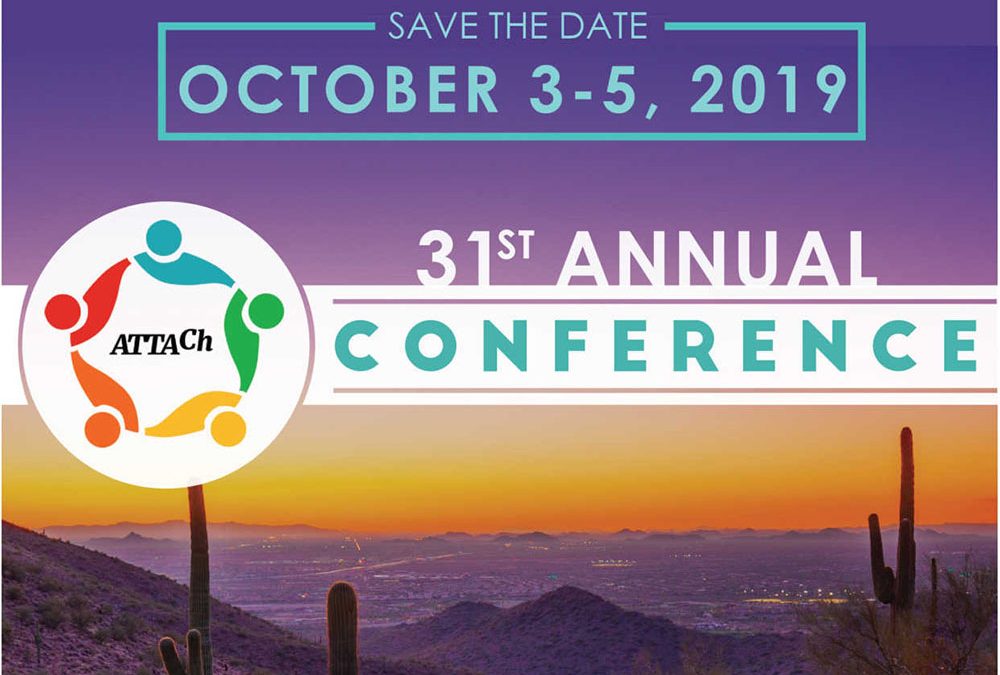 This October marks the 31st year that the Association for Training on Trauma and Attachment in Children (ATTACh) is hosting its annual conference (October 3-5, in Scottsdale, AZ). Looking back over three decades, one can’t help but be impressed by how far we have come in understanding attachment issues and supporting children and families who are struggling.
This October marks the 31st year that the Association for Training on Trauma and Attachment in Children (ATTACh) is hosting its annual conference (October 3-5, in Scottsdale, AZ). Looking back over three decades, one can’t help but be impressed by how far we have come in understanding attachment issues and supporting children and families who are struggling.
When Michael Orlans and I were building our practice and beginning to share our expertise in the treatment of attachment and trauma problems in the 1980s, we noticed significant gaps in the resources that were available to mental health and social service professionals, as well as parents. In discussing how to fill these holes with like-minded colleagues, the idea for an annual conference was born.
The ATTACh conference was founded with the mission of bringing together professionals, and – for the first time – parents from across North America and beyond to learn from one another and receive cutting-edge training from leaders in the field of trauma and attachment.
In fact, our main goals from 31 years ago still hold today:
1. Attachment between children and caregivers is basically the core of human development, and it was not getting the spotlight it deserved. So, we wanted an opportunity to focus on attachment-theory, research, education, therapy, and parent training.
2. We wanted to emphasize family and community systems. Until then, the study of attachment focused on infants and children and the mother-baby relationship. The family system – including family dynamics, marital and co-parenting relationships, and adult attachment – were being ignored. There was also a lack of focus on the importance of how community systems affect attachment and families – including medical, mental health, child welfare, legal, school, and foster care systems.
3. In the 1980s, we were just beginning to understand how in-utero and early attachment experiences affect the wiring, architecture and biochemistry of the brain. We hoped that through this conference we could build on our understanding of the significance of interpersonal neurobiology.
4. Finally, and significantly, we saw that most of these types of conferences and organizations were professional. They only allowed mental health and social service professionals to participate. But we believed (and still do) that there is a need for communication and understanding between parents and professionals. Therefore, from the start, the conference was organized with parents and caregivers in mind.
I was honored to sponsor two conferences on attachment and trauma in 1988 and 1989 in Miami. To my surprise, 300 people attended the first and even more the second. Seeing the demand, we formed ATTACh during the second conference in 1989. Thirty-one years later, both the conference and the organization are as relevant as ever, helping both professionals and caregivers navigate the complex waters of treating attachment and trauma disorders.
Please join us October 3 – 5 in Scottsdale to build your knowledge and skills and benefit from the support of an incredible community of experts.
For more information, do not hesitate to contact Evergreen Psychotherapy Center.


